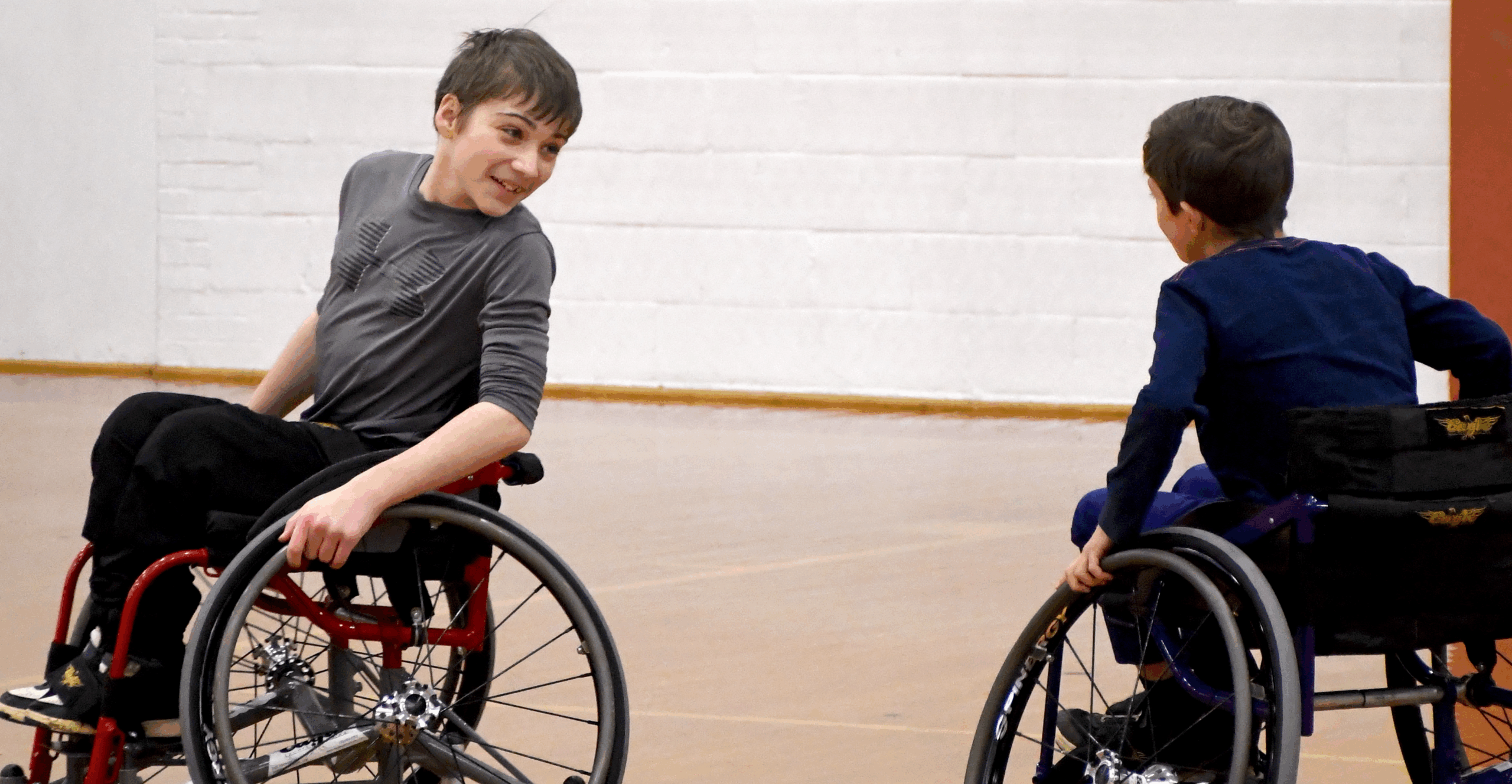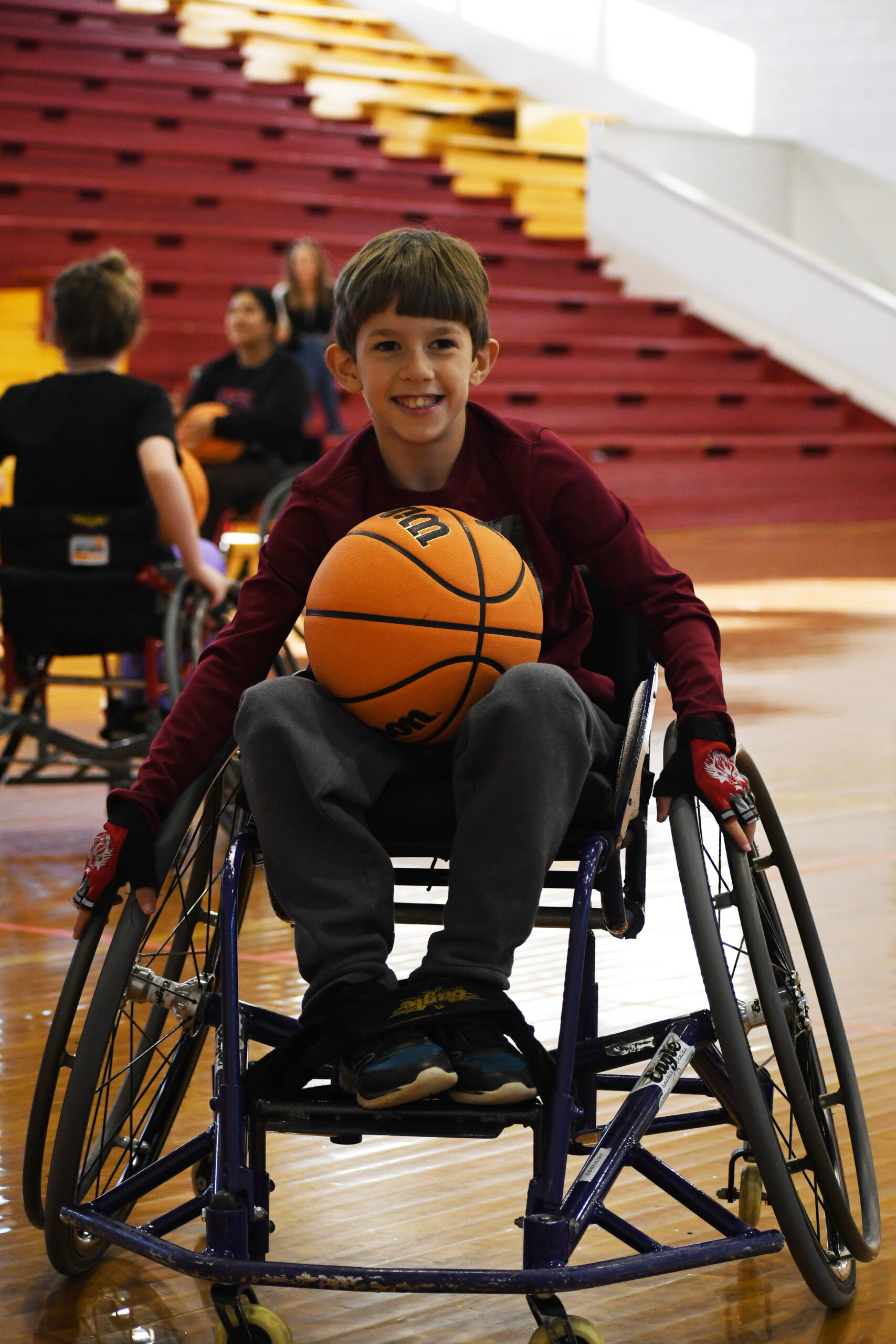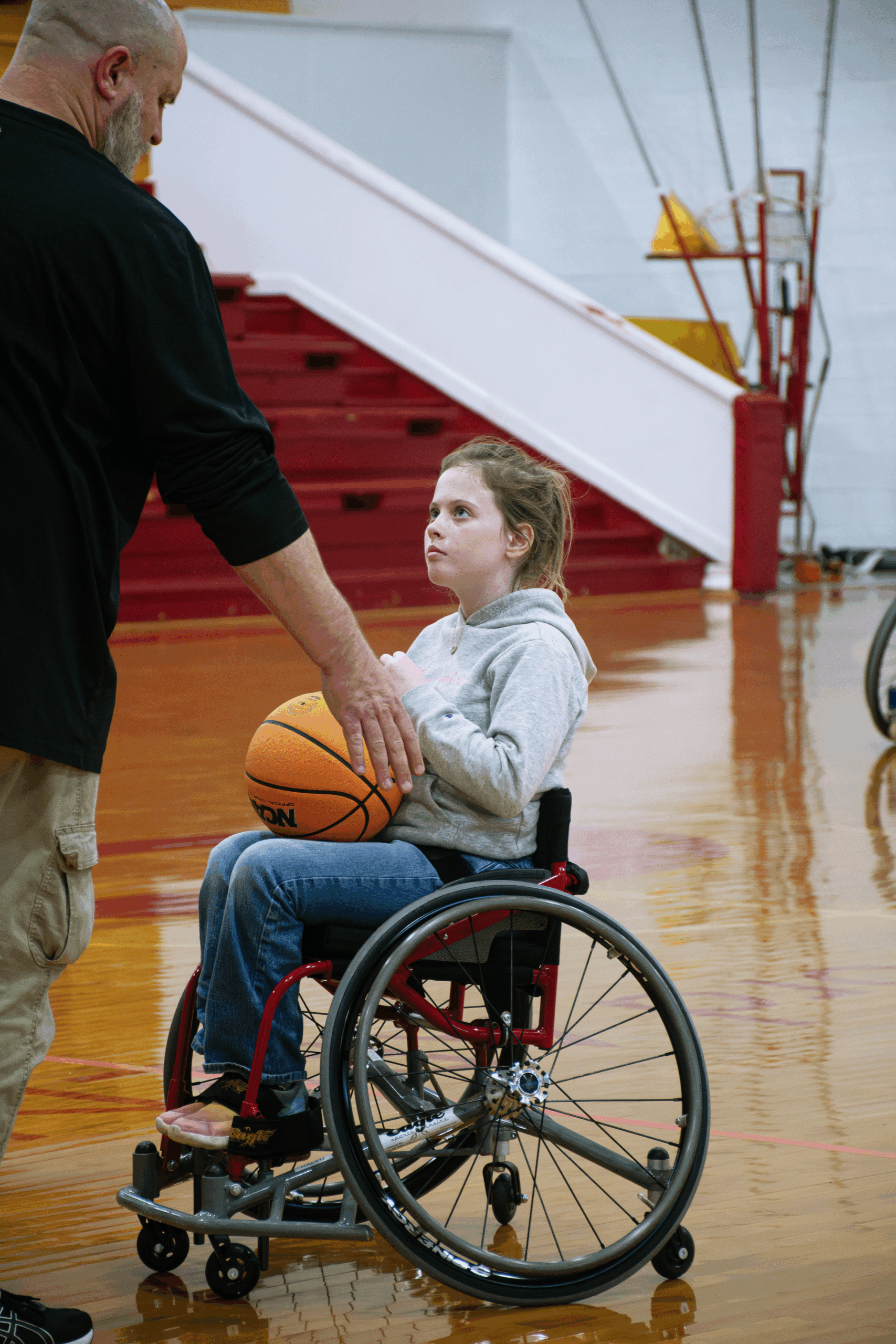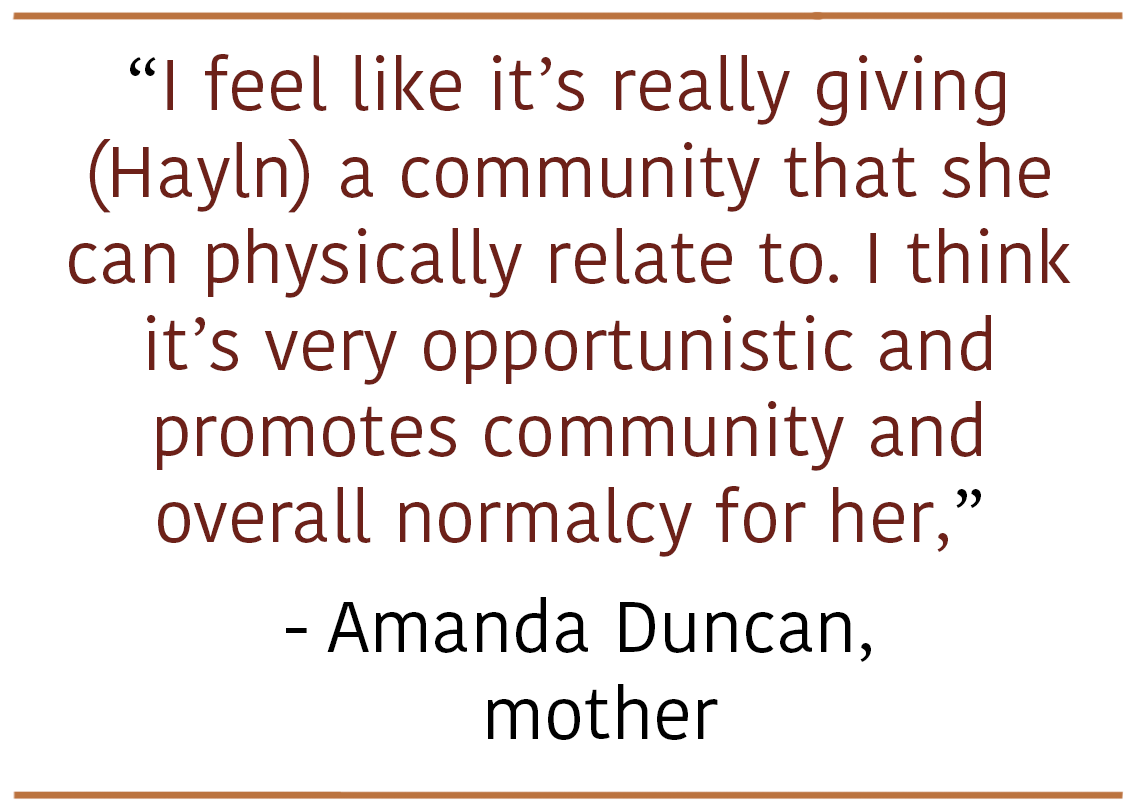
An adapted addition: Classic City Dawgs take on the court
The American Association of Adapted Sports was established in 1996 to provide disabled students the opportunity to experience school athletic competitions in the same way their non-disabled classmates do. The program started after the 1996 Paralympic Games, as many parents and members of the disabled community across the country showed interest in parasports.

Starting in 2008 and ending in 2013, the Clarke County School District offered a pay-to-play adapted sports team that eventually dissolved with low interest. Up until spring 2024, the only adapted team in the north Georgia area was a pay-to-play team based in Atlanta, until the Classic City Dawgs adapted sports team started up their first season with junior varsity football. Along with CCSD students, students from Banks, Barrow, Jackson, Walton and Oglethorpe counties can play as well.
Chris Aiken, physical education teacher and Associate Athletic Director at Clarke Central, was offered the position of district coordinator for the Dawgs, and after winning the $35,000 AAASP ASPIRE grant in October of 2023, he helped start the first full year of the team.
Most wheelchair-adapted sports have gameplay similar to their standard version, though there are some rule changes. For example, there is no double-dribble rule in wheelchair basketball. Players can dribble and wheel at the same time, and if the ball is picked up or placed on the player’s lap, they are only allowed to push twice before dribbling, passing or shooting the ball again.
The Dawgs’ first full year of adapted sports started with football in the spring of 2024, handball season later in the year and then basketball season in December continuing into spring 2025.
Clarke Central High School special education team leader Ryan Johnson serves as the head coach for the Dawgs, starting his position in the fall at the beginning of handball season. For Johnson, one of the most difficult adjustments is learning the finer points of new sports.
“I’ve never played basketball before. I was just around as the athletic trainer, and I’ve never played handball. It was just challenging trying to teach the kids how to do it and learn it at the same time,” Johnson said.
All athletes are provided with jerseys, wheelchairs and coaches with no fees. Athletes can have up to 46 different qualifications to compete on the various adapted teams, such as amputations, knee or hip joint replacements and permanent disabilities that limit the ability to run or jump.
4.3% of children in the U.S. have some sort of mental or physical disability, and over 90% of those children are socially isolated.

Amanda Duncan, mother of third grader at Malcom Bridge Elementary athlete Hayln Duncan, has found that joining the team has been beneficial for her daughter in her sense of belonging.
“I feel like it’s really giving (Hayln) a community that she can physically relate to. I think it’s very opportunistic, and I think it just promotes community and just overall normalcy for her,” Duncan said.
Disabled children’s isolation can lead their parents to feel alone as well. Along with isolation, parents can also experience depressive symptoms and considerable stress, so parents can benefit from finding other families that might share similar struggles.
“I think as parents, it gives a really good support system as well, because you come together with parents that are kind of going through similar things. I think that’s the one of the hardest things about having kids with special needs: you feel like you’re kind of alone,” Duncan said.
Johnson makes the space fun and inviting for the athletes by keeping a positive attitude and encouraging students on and off the court. However, with only six players on the team, Johnson feels that many more could enjoy it.
“You have people that are fully capable or fully qualified to play because of some physical disability that just kind of look at you and go, ‘No, I’m not interested,’ and they haven’t even tried it yet,” Johnson said.
Along with keeping practices and games positive and encouraging, Johnson also hopes to build up the team’s bond by building connections with each other.
“We do some games during practice to build camaraderie, and there is some time before and after practice for the kids to talk to each other and hang out. Although we haven’t actually done anything outside of practice or games, I’m hoping as we build a program and funds are available, we can start doing some more team bonding out of the gym,” Johnson said.
Lane Rogers, a sixth grader at East Jackson Middle School, has found a feeling of belonging in the team that adds to the fun of playing.
“This is my most fun experience playing basketball so far, and it’s been pretty good, especially since I’m shy. They’re basically family to me now, so I’m not shy towards them,” Rogers said.

Along with liking the team, many players also enjoy the wins that come with their hard work. The Dawgs won their first wheelchair basketball game on Jan. 25, beating the Atlanta Wolfpack 23-19. After all the work the team put in, Johnson felt the win was very deserved.
“I was incredibly happy and proud of the team. They made significant progress in learning how to play the game and in skill development. The players were so tired they didn’t register that they had won, but once they rested a bit and started to head home it finally dawned on them – or they caught a second wind to celebrate,” Johnson said.
Madison County Middle School sixth grader Elam Tyson is one of those who enjoy the wins.
“My favorite part of playing is all our victories, and after we win I feel awesome. Our teammates and coaches are pretty awesome too, and our parents are good supporters,” Tyson said.
The program is slowly growing, and Johnson emphasizes the importance of keeping athletes happy to stay for the seasons to come.
“Don’t worry about winning and losing. Just get out there, do your best and have fun. So the life lesson there is just if you’re gonna do something, do your best at it and at least try to have fun doing it,” Johnson said.



